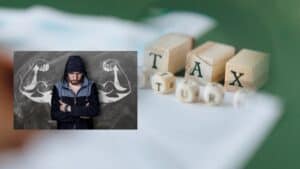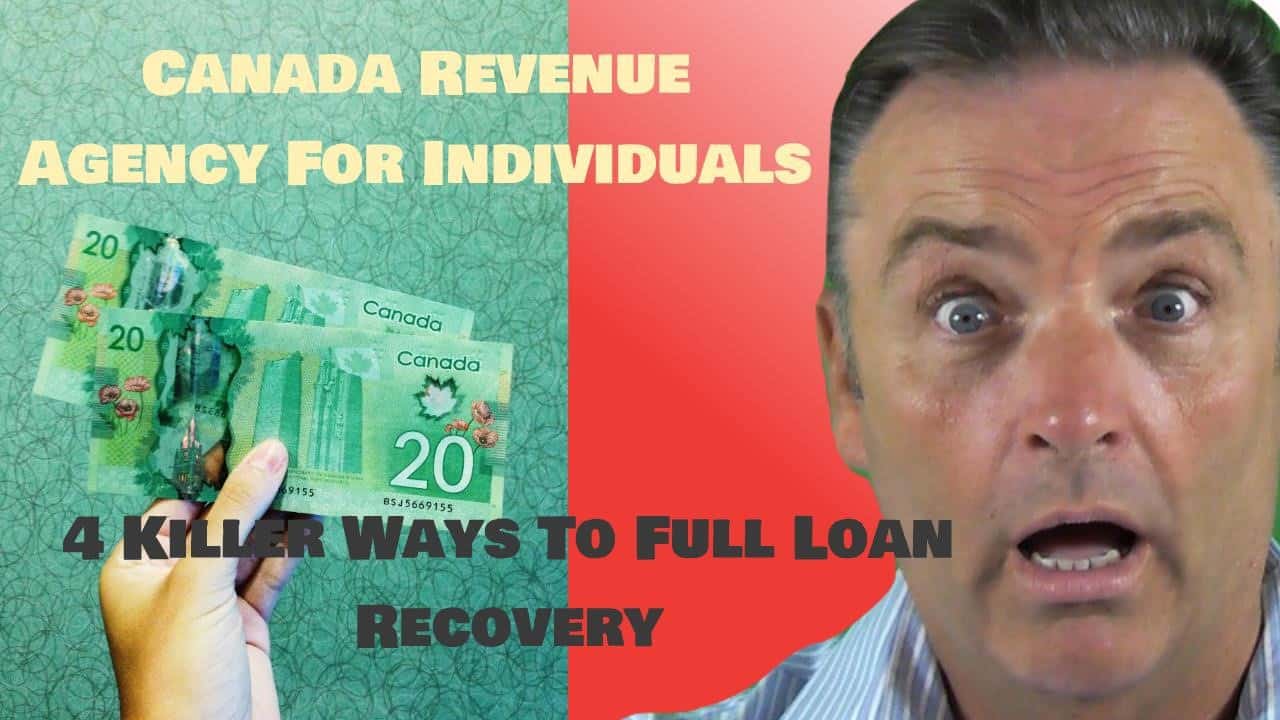
We hope that you and your family are safe, healthy and secure during this COVID-19 pandemic.
Ira Smith Trustee & Receiver Inc. is absolutely operational and Ira, in addition to Brandon Smith, is readily available for a telephone consultation or video meeting.
If you would prefer to listen to the audio version of this CRA lien on property Brandon Blog, please scroll to the very bottom of this page and click play on the podcast.
CRA lien on property: Canada Revenue Agency’s collection powers
The CRA (formerly known as Revenue Canada) assigns “collection officers” to taxpayers who fail to make timely payments or who do not pay in full. For the CRA to agree to a payment arrangement (usually monthly payments), the taxpayer must provide financial disclosure on a monthly basis (details of their expenses, their income, and their assets).
Tax debts that cannot be settled through a payment plan may be registered in Federal Court. Once the debt is certified, the certificate is equivalent to a judgment entered in court. This is called a memorial. If you own property, the CRA can create a lien on your property based on your judgment. A CRA lien on property against your interest in your home is the most common CRA lien on property they register.
This Brandon Blog discusses a recent decision from the British Columbia Supreme Court that confirms that the CRA lien on property becomes secured once they are registered.
What is a Super Priority Lien?
A super priority lien is a powerful legal tool that gives the Canada Revenue Agency (CRA) first claim on a debtor’s assets when taxes aren’t paid. This type of lien takes priority over almost all other creditors, including banks and mortgage companies. The super priority lien applies specifically to unpaid source deductions (payroll taxes) and GST/HST taxes.
How Super Priority Liens Work
When a business fails to pay certain taxes, the CRA automatically gets a super priority lien on the company’s assets. This happens because of something called a “deemed trust” in Canadian tax law. Here’s what this means:
The government considers payroll taxes and GST/HST as money held in trust for them. Even if a business owner spends this money on other things, the law still treats it as government property. This creates the super priority lien without any paperwork or registration.
Key Features of Super Priority Liens
Automatic Creation: Unlike other liens, a super priority lien doesn’t need to be registered or filed. It exists automatically when taxes aren’t paid.
Higher Priority: The super priority lien beats almost all other claims on assets, including mortgages and other secured loans.
Specific Tax Types: This special lien only applies to source deductions (like income tax, CPP, and EI taken from employee paychecks) and GST/HST taxes.
Why Super Priority Liens Matter for Lenders
Commercial lenders face real risks from super priority liens. When a business owes these special taxes, the CRA’s claim comes before the lender’s mortgage or loan. This means:
- Lenders might not get paid back if the business fails
- The super priority lien can exceed the property’s value
- Even after a mortgage is paid off, the lender could still be responsible for the borrower’s tax debt
Protecting Against Super Priority Lien Risks
Smart lenders use several strategies to protect themselves:
Thorough Due Diligence: Check if the borrower owes source deductions or GST/HST before lending money.
Legal Review: Have a qualified tax lawyer review the loan documents and borrower’s tax situation.
Title Insurance: Buy title insurance with special endorsements that cover super priority lien risks.
Extended Coverage: Some insurance companies offer protection that continues even after the mortgage is paid off.
Limited Exceptions to Super Priority Liens
While super priority liens are very powerful, some exceptions exist. Certain types of security interests may have priority in specific situations. However, these exceptions are rare and very narrow. Most creditors, including mortgage lenders, will find their claims come after the CRA’s super priority lien.
The Bottom Line on Super Priority Liens
Super priority liens represent one of the strongest collection tools available to the Canadian government. For businesses, this means payroll taxes and GST/HST must be paid on time. For lenders, it means careful planning and proper insurance are essential to avoid significant losses.
Understanding how super priority liens work helps both borrowers and lenders make better financial decisions and avoid costly surprises, as we will see immediately below.
CRA lien on property: CRA Super Priority Liens
I previously wrote a Brandon Blog about the legal case of Canada v. Toronto-Dominion Bank. By mentioning this case, I hope that my comments about the recent British Columbia Court decision below will be clearer.
Federal statutes give CRA a creditor powerful tools to collect debts. They can access avenues of collection significantly quicker than other types of creditors. It was not known to Toronto-Dominion Bank (TD) that, as a sole proprietor operating a landscaping business, the borrower had collected GST in the amount of $67,854.
After selling his home, the borrower fully paid off his first mortgage with TD. TD did not lend to or deal with the proprietor’s business. Since there was no CRA lien on property against the house, TD was not aware of the outstanding GST.
The CRA has enhanced security, known as “super-priority”, over most of a tax debtor‘s real property and personal assets, by virtue of deemed trust provisions in the Income Tax Act and Excise Tax Act (ETA). CRA has priority over substantially all secured creditors under the deemed trust concept, which means that the proceeds of the sale from the property subject to the deemed trust will go to CRA. A deemed trust claim is a CRA lien on property and is obtained without any registration.
A demand letter was subsequently sent to TD demanding that a portion of the proceeds be used to satisfy the GST debt. TD refused to pay since they believed their mortgage security ranked higher than CRA’s claim for unremitted GST. Court action was taken against TD by the CRA. The Crown argued that under section 222 of the ETA, the proceeds received by TD on the repayment of the mortgage and line of credit were subject to a deemed trust in favour of the Crown.
The Federal Court held that TD had an obligation to reimburse the CRA for the debt of $67,544, plus interest, owing by the Borrower to the CRA. Super-priority interests can be enforced by the CRA without notifying the secured creditor. TD was responsible for repaying CRA amounts received from a borrower with an outstanding GST/HST bill.

FCA confirms CRA super-priority over secured creditors on a GST/HST debtors’ property
TD appealed the decision of the Federal Court to the Federal Court of Appeal (FCA). According to the FCA ruling in Toronto-Dominion Bank v Canada, the FCA agreed with the lower Court that TD must pay the CRA proceeds of $67,854 for unremitted GST that it received from a borrower upon the discharge of its mortgage. CRA is considered to hold in trust amounts paid to a secured creditor from a debtor who owes Goods and Services Tax/Harmonized Sales Tax (GST/HST) liabilities.
FCA affirmed the Federal Court’s finding that no triggering event was required and that the deemed trust operates continuously once GST is collected but not remitted. Further, the FCA noted that case law has distinguished between secured creditors and bona fide purchasers of value, such that the two categories are mutually exclusive.
It is best for secured creditors to review their current risk management practices and revise them both at the time of due diligence when vetting new borrowers as well as throughout the term of any secured credit agreement.
If we were talking about unremitted employee source deductions, the result would be the same.
CRA lien on property: Personal income tax debt collection
CRA is a powerful creditor when it comes to personal income tax debt collection. Above I discussed how they can get a CRA lien on property just by way of the statute for unremitted source deductions or unremitted GST/HST. But what about personal income taxes? CRA does not have an automatic lien for unpaid income taxes.
However, they can go to Federal Court and obtain a memorial and then register that CRA lien on property of the tax debtor who fell behind in their payment of taxes. Once they place that lien, they now turned their unsecured claim for unpaid taxes into a secured claim. As I already mentioned, the most common type of property they register against is real property, like the tax debtor‘s home.
If the CRA lien on property goes on the real property before the person who owes unpaid income taxes files either a consumer proposal or bankruptcy, then the CRA lien on property stays on. CRA will not try to go power of sale or foreclosure to throw the taxpayer out of their home based on this tax lien. Rather, they will just wait until the taxpayer either sells the home or tries to renew or refinance a mortgage.
In the case of a sale, they will get their tax lien paid out of the sale proceeds. In the case of a mortgage renewal or refinancing, mortgage lenders will not do a new mortgage loan or a refinancing with the CRA lien on property. This is how they get their money.
Keep in mind that the lien is only against the taxpayer’s interest in the home. So if the tax debtor is the sole owner, it is against 100% of the home. If the taxpayer owns the home jointly with say, a spouse, then the lien is only against the 50% interest.

CRA lien on property: Can Canada Revenue Agency put a lien on my house?
You should now know that the answer to this question is yes. Licensed insolvency trustees know this. Nevertheless, in the British Columbia case I will describe now, the Trustee tried a novel, but an unsuccessful, approach to try to knock out CRA’s lien on property secured claim to collect taxes owed by the tax debtor. I am referring to Gidda (Re), 2021 BCSC 1460 (CanLII).
The licensed insolvency trustee appealed the decision of the Master as Bankruptcy Registrar dated February 3, 2020, reversing the Trustee’s rejection of a secured proof of claim filed by the federal Crown on behalf of the CRA in the bankruptcy. As well, the Trustee appealed the Master’s ruling that he is personally liable for the costs of the proceeding.
The CRA has taken out a memorial to attach a lien in favour of CRA to the taxpayer’s home due to unpaid income taxes. Then he filed for bankruptcy. So the lien against property holds as it came before the bankruptcy. A secured proof of claim for unpaid income tax was filed by the CRA in response to the memorial and registered tax lien. A secured claim was granted to CRA, which was not directly contested by the Trustee.
In my opinion, this claim, however, was handled by the Trustee in a novel way that wasn’t sustainable. It was so novel that the Judge took judicial notice of the submissions that such a case was never litigated before in Canada. There were also a number of judgments against the title of the property in addition to the memorial. There was no priority among the other judgments.
According to section 70(1) of the Bankruptcy and Insolvency Act (Canada) (BIA), bankruptcy takes precedence over judgments, garnishments, and any collection action. Furthermore, no judgment takes precedence over another.
A memorial is a judgment of the Federal Court, and since all judgments are treated equally as unsecured creditors, the Trustee disallowed CRA’s secured claim. Because the memorial and its registration against the title are secured claims under other federal statutes, it has powers not given to other simple money judgments. Therefore, I believe it is a losing argument. So did the Master.
In addition, the Master believed that the Trustee ought to have been aware of this when disallowing CRA’s secured claim and causing it to appeal the Trustee’s decision. Therefore, the Master awarded the Crown costs to be paid by the Trustee personally.
On both counts, the Trustee appealed the Master’s decision. The Judge who reviewed this found that the Master was correct in upholding the CRA secured claim and dismissed this portion of the Trustee’s appeal. The Judge did, however, let the Trustee off the hook by allowing the costs portion of the appeal. According to the Judge, the costs awarded by the Master will be paid by the bankruptcy estate and not by the Trustee personally.
CRA lien on property: Say goodbye to debt stress
I hope that you found this CRA lien on property Brandon Blog informative. Unpaid taxes and a heavy debt load do not mix well. If you have too much debt, you are considered insolvent. There are several insolvency processes available to you. It may not be necessary for you to file for bankruptcy.
If you are concerned because you or your business are dealing with substantial debt challenges, you need debt help and you assume bankruptcy is your only option, call me.
It is not your fault that you remain in this way. You have actually been only shown the old ways to try to deal with financial issues. These old ways do not work anymore.
The Ira Smith Team utilizes new modern-day ways to get you out of your debt difficulties with debt relief options as an alternative to bankruptcy. We can get you the relief you need and so deserve. Our professional advice will create for you a personalized debt-free plan for you or your company during our no-cost initial consultation.
The tension put upon you is big. We know your discomfort factors. We will check out your entire situation and design a new approach that is as unique as you and your problems; financial and emotional. We will take the weight off of your shoulders and blow away the dark cloud hanging over you. We will design a debt settlement strategy for you. We know that we can help you now.
We understand that people with credit cards maxed out and businesses facing financial issues need a realistic lifeline. There is no “one solution fits all” method with the Ira Smith Team. Not everyone has to file bankruptcy in Canada. The majority of our clients never do as we know the alternatives to bankruptcy. We help many people and companies stay clear of filing an assignment in bankruptcy.
That is why we can establish a new restructuring procedure for paying down debt that will be built just for you. It will be as one-of-a-kind as the economic issues and discomfort you are encountering. If any one of these seems familiar to you and you are serious about getting the solution you need to become debt-free, contact the Ira Smith Trustee & Receiver Inc. group today.
Call us now for a no-cost consultation.
We hope that you and your family are safe, healthy and secure during this COVID-19 pandemic.
Ira Smith Trustee & Receiver Inc. is absolutely operational and Ira, in addition to Brandon Smith, is readily available for a telephone consultation or video meeting.
cra lien on property



